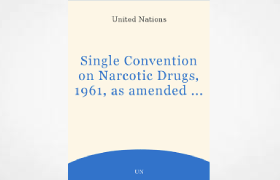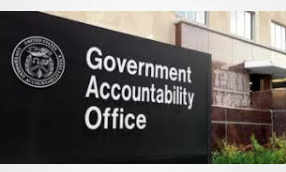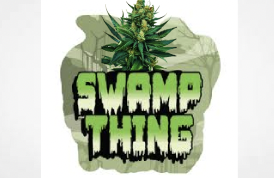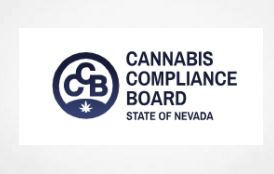Cutting Edge Thoughts on Drug Regulation by Matt Zorn and Shane Pennington
If the subtext with this piece means that now they’ve tackled the Federal government , now it’s time for the UN
These two lawyers are turning into caped crusaders for everybody attached to this thing called cannabis. They are tackling sacred cows and what looks like a strategem tostart the next big push in cannabis regulation. Changes on the statute books in the US mean the start for a push to change UN traeties. It’s going to be a ding dong battle.
Short answer: Far more than most people realize. The U.S. signed on to the Single Convention in 1967, and Congress made many of its requirements binding as a matter of U.S. domestic law through the enactment of the Controlled Substances Act a few years later. 18 U.S.T. 1407, 520 U.N.T.S. 204. Among other things, the Single Convention requires parties to impose stringent controls on the cultivation, manufacture, and distribution of narcotic drugs, including cannabis. Single Convention art. 1(1)(b). Parties must, among other things, establish quotas on the import and manufacture of cannabis, generally prohibit cannabis possession, and adopt penal provisions making violations of those controls punishable offenses. Id. arts. 21, 33, 36.
Several provisions of the CSA tasks DEA with ensuring U.S. compliance with many of its obligations under the Single Convention.¹ Over the years, DEA has cited the Single Convention as the primary legal basis for some of its most asinine cannabis policies, including, for example, insisting for years that cannabis must remain in schedule I or II of the CSA, refusing to deschedule the FDA-approved CBD drug, Epidiolex, until Congress forced it to do so in the 2018 Farm Bill, and insisting that it can unilaterally dismiss cannabis-related rescheduling petitions without consulting HHS (whose views on scientific and medical questions Congress made binding on DEA in the scheduling process²) and without permitting public comment or hearings that are ordinarily required in scheduling proceedings.³
Litigation that Matt and I took on pro bono a few years back led to the end of the NIDA monopoly and uncovered a secret 2018 OLC Opinion that cited U.S. obligations under the Single Convention as the basis for deep-sixing an Obama-era program designed to expand cannabis research in the U.S. Yet, it is no exaggeration to say that the Single Convention is one of the key reasons—if not the key reason—that the U.S. has been stuck in a cannabis-science dark age for decades. And as Matt and I have repeatedly warned, it is the primary remaining obstacle to DEA transferring cannabis to schedule III.
Longer Answer: To appreciate just how much influence the Single Convention has had over federal cannabis policy, you have to understand some history. As I explained in one of my very first OnDrugs posts, one of the main reasons the U.S. signed on to the Single Convention back in 1967 was to thwart state-level efforts to legalize cannabis. https://ondrugs.substack.com/
Another important reason for becoming a party to the 1961 convention is the marihuana problem …. Several groups in the United States are loudly agitating to liberalize controls and, in fact, to legalize its use …. If the United States becomes a party to the 1961 convention we will be able to use our treaty obligations to resist legalized use of marihuana. This discussion is going on all over the country, in many universities, and in fringe groups, and it is rather disturbing.
See Senate Comm. On Foreign Relations, Convention on Narcotic Drugs, 1961, S. Exec. Rep. No. 11, 90th Cong., 1st Sess. 20 (1967) (statement of H.J. Anslinger). Anslinger had been working on this idea, which I have dubbed “Anslinger’s Treaty Trap,” for years. He even wrote a law review article about it in 1959. See The Implementation of Treaty Obligations in Regulating the Traffic in Narcotic Drugs, 8 Am. U. L. Rev. 112 (1959).
Why was the Single Convention and this “Treaty Trap” idea so important to Anslinger? Because he understood a dirty little secret about cannabis prohibition that many have long since forgotten: It’s unconstitutional. As Anslinger put it in a confidential memo her wrote back in 1936, “under the taxing power and regulation of interstate commerce it would be almost hopeless to expect any kind of adequate control.”⁴ Anslinger was right. Such public health and safety measures are quintessential exercises of the “police powers” reserved to the states under the Constitution.⁵
The Treaty Trap was, in short, a scheme designed by Anslinger himself to accomplish what he knew was an unconstitutional policy objective: federal cannabis prohibition. As Matt and I have explained, however, Anslinger’s scheme is, itself, unconstitutional.
How can the U.S. navigate its obligations under the Single Convention while moving towards federal cannabis legalization?
The easiest way would be to do with cannabis what it already did with Epidiolex—reschedule cannabis to schedule III and then impose any additional restrictions necessary to ensure treaty compliance through separate cannabis-specific regulations. Shawn Hauser, Jason Adelstone, and I explained this point at some length here. While schedule III is just the first step, it is a historic one.
Another way would be to bring a constitutional challenge to the provision of the CSA that requires DEA to follow the treaty in scheduling decisions. Matt and I have already teed up the key constitutional argument, and our record in litigating these issues (together and separately—especially in Matt’s case) speaks for itself.
Yet another way would be for DEA and DOJ could simply follow the State Department’s lead in recognizing that the Single Convention’s requirements are designed to control international trafficking—not the domestic policy of signatory states. I wrote about this development recently here.
Finally, the U.S. could formally change its relationship to the Single Convention through the channels described in the treaty itself or Congress could amend the CSA to remove the provisions that make the treaty’s requirements binding as a matter of U.S. law. But because those solutions are more drastic and complex, I’ll leave an in-depth discussion of them for another day.
What are the potential international ramifications for the U.S. if it were to deviate from the Single Convention’s cannabis restrictions?
I’m not really qualified to answer this one because doing so would require a fairly sophisticated understanding of the current state of U.S. diplomatic relations with its treaty partners generally. That’s beyond my pay grade, unfortunately. I do feel qualified to say three things, however.
First, I do know that the U.N. generally does not take drastic measures against signatory states that run afoul of the Single Convention’s requirements. Historically, its International Narcotics Control Board simply mentions the issue in one of its annual reports.⁶ So, formally speaking, the potential ramifications are almost non-existent. That said, as I explain next, there may be informal ramifications.
Second, while I’m not expert on foreign diplomacy, the U.S. is surely negotiating many important drug-policy issues with its treaty parties on an international level. Those who oppose U.S. policy goals on those related issues could (I assume) use U.S. deviations from the Single Convention’s cannabis requirements against the U.S. in those negotiations. I would guess that these informal ramifications of non-compliance are more concerning to the federal government.
Third, it’s worth noting that (1) the International Narcotics Control Board has, in fact, repeatedly chided the U.S. for ignoring its treaty obligations by permitting states to legalize recreational cannabis use and (2) OLC—the authoritative expositor of legal questions in the Executive Branch—acknowledged in that secret opinion that Matt and I uncovered in the litigation I mentioned earlier admitted that DEA’s marijuana research policy had put the U.S. in open and continuous violation of its obligations under the Single Convention for over half a century.⁷ Thus, according to the INCB and even OLC itself, the U.S. has been “deviating” from its treaty obligations for decades and continues to do so to this day. It therefore stands to reason that if there really are any “ramifications” for such “deviations,” we would have—or already have (?)—experienced them by now.
On Drugs is a reader-supported publication. To receive new posts and support my work, consider becoming a free or paid subscriber.
Thank you for reading On Drugs . This post is public so feel free to share it.
Share
1
Control of Papaver bracteatum—Drug Enforcement Administration, 1 Op. O.L.C. 93, 95 (1977) (citing 21 U.S.C. §§ 801(7), 811(d), 812(b), 953(a)(1), 958(a)); see also S. Rep. No. 91-613, at 4 (1969) (“The United States has international commitments to help control the worldwide drug traffic. To honor these commitments, principally those established by the Single Convention on Narcotic Drugs of 1961, is clearly a Federal responsibility.”).
2
21 U.S.C. § 811(b).
4
My source for this point is Chapter 9 of David Musto’s book “American Disease: Origins of Narcotic Control.” Definitely worth a read:
5
See, e.g., Whalen v. Roe, 429 U.S. 589, 603 n.30 (1977) (States retain “broad police powers” under Tenth Amendment to regulate “the administration of drugs by the health professions”); Linder v. United States, 268 U.S. 5, 18 (1925) (“[D]irect control of medical practice in the states is beyond the power of the federal government.”).
7
See OLC Op. at 8 (“We conclude that [DEA’s] existing [cannabis] licensing framework departs from Article 23 [of the Single Convention] in three respects. First, the division of responsibilities between DEA and NIDA, a component of the Department of Health and Human Services (“HHS”), contravenes Article 23(2)’s requirement that all Article 23 functions be carried out by a single government agency. Second, neither of the two government agencies “take[s] physical possession” of the marijuana grown by the National Center, as required by Article 23(2)(d). Third, no federal agency exercises a monopoly over the wholesale trade in marijuana, as required by Article 23(2)(e). We discuss each departure in turn.”).
Also
I’m grateful to Eric Postow of Holon Law Partners for having me on his podcast, Above the Haze, recently. While our conversation was wide ranging, we didn’t have time to cover Eric’s questions about the Single Convention on Narcotic Drugs of 1961. I’ve been getting a lot of treaty-related questions lately, so I thought I’d answer Eric’s here.



















